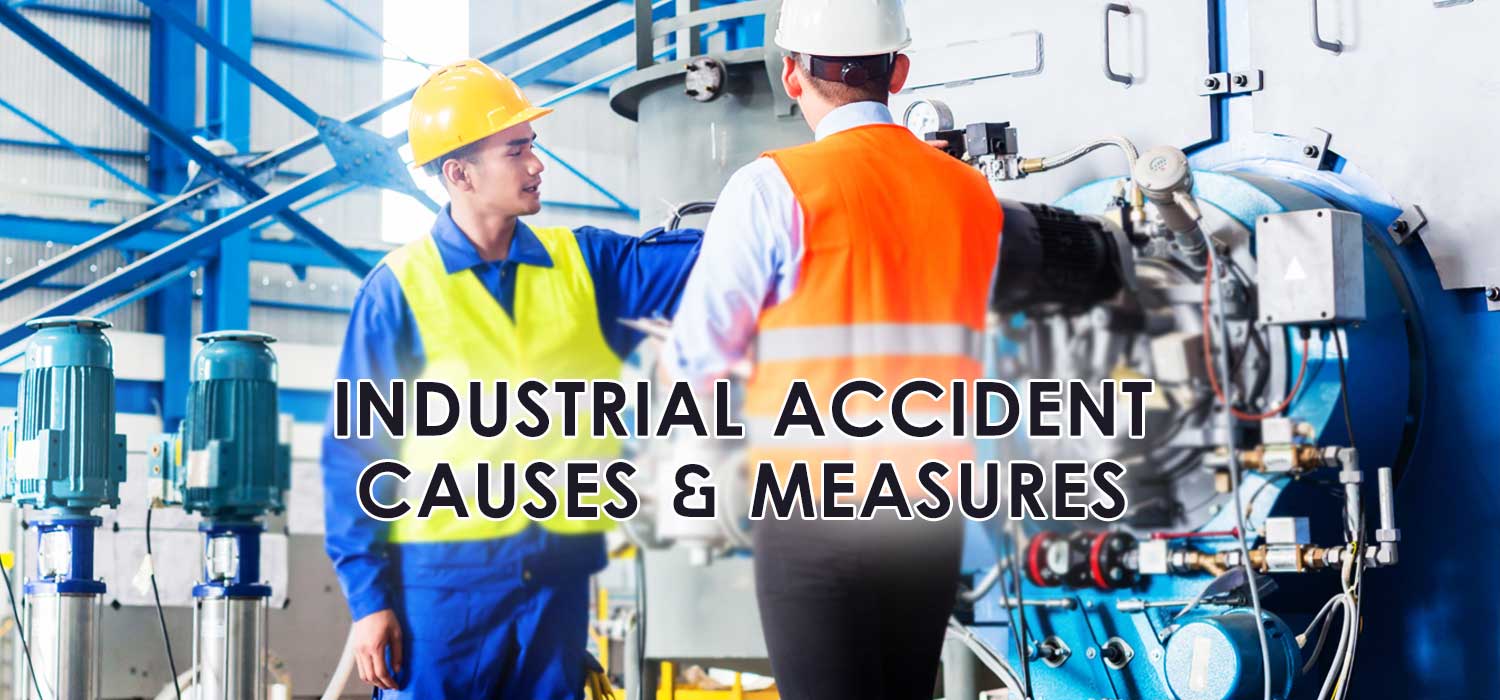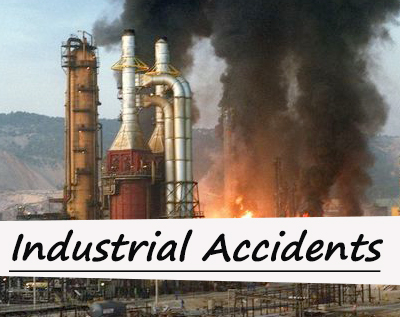
Industrial safety

Industries which employ millions of workers often face peculiar situations due to sudden accidents and other unexpected disasters. These unforeseen incidents can, to certain extent, be prevented by taking necessary preventive measures. Industrial safety is a highly critical system for any organisation or enterprise of any industrial sector that guarantees safe and secure work condition for workers by enforcing and following various safety standards and regulations.
Industrial safety also forms part of the management system where employees’ safety and health were given highest priority and effective measures are taken to mitigate and control risks, dangers and potential hazards which may cause injuries, fatalities, income loss to workers and production loss to the employers.
Maintaining hazardous –free and safety work condition has many advantages. It not only saves workers from falling victims to unguarded and unsafe workplaces, for companies, it can save them from paying heavy compensation, penalties, medical aid, cost of lost time, training new workers and accident investigation, damages to materials, to name a few.

Industrial accidents can be caused due to several reasons. However, it can be classified into two broader categories – natural and preventable accidents. In the natural types of accidents, which can’t be foreseen or predictable, can be due to floods, earthquakes or any other natural phenomenon. Accidents which happen due to natural cause can be sudden, catastrophic, affect large workforce, can claim lives and do extensive damages to machines and properties.
All other types of accidents such as fire due to faulty electrical circuits, chemical spills and gas leaks, machine failures, fall from elevated places, etc can be treated as preventable incidents. Unsafe jobs and machinery, tiring work schedules and dissatisfaction and physiological conditions can also trigger accidents and affect the health of workers.
As every work environment is unique and offers different kinds of safety risks, dangers, hazards and health perceptions, safety managers and HSE professionals who are involved in the welfare and wellbeing of the employees and employers adopt different strategies and use management techniques to defuse the risk perceptions to make the workplaces safe and healthy for all.
Safety measures can vary according to the industry and work environments where workplace officers and health and safety managers need to use various mechanisms and adopt different methodologies and measures to remove threats, risks and other dangerous phenomenon at workplaces.
Safety aspects of any organisation should begin from the very inception stage itself by adopting right safety plans, quality installation and crisis management system.
Companies should also follow safety protocols such as government imposed mandatory safety regulations, industrial safety standards and practices and other international HSE codes and safety laws. Safety managers and HSE consultants who are hired to ensure safety to workers need to assess the risk factors associated with each work and evolve a comprehensive strategy and preventive measures to remove potential dangers and hazards from every stage of work so that workers can perform happily and freely without any apprehension of getting injured.
Apart from following and imposing all precautionary measures, workplace managers should also train workers on various safety practices and measures to be followed and make them understand the importance of using safety equipment, tools and gadgets. Regular maintenance and inspections by safety officer and safety audits by HSE auditors can also reduce the risks and bring down the incidents.
Industries, once they have all safety measures, safety gadgets and HSE standard protocols installed, can’t relax that their workplaces are absolutely safe for ever. There should be regular inspection by indoor or outdoor HSE experts who will go through each and every step of work processes to find whether there are chances of future mishaps, accidents, damages to equipments and properties.
Safety auditing is done on regular basis preferably by accredited safety auditors or government recognised auditing experts who critically examine each and every aspect of work in every department to ensure and minimise the losses.
There can also be a safety survey by HSE experts and consultants who will do in-depth and critical examination with finer details involving all safety activities and measures. This activity is carried out by enterprises to eliminate risk factors and possible health hazards due to work activities and unhygienic conditions.
Companies also carry out safety inspection by in-house departmental safety representatives from within or outside the department or unit. This is basically a self-analysis where the safety personnel will report to the management about the lacunae, if any, in safety conditions and recommend corrective measures.

Majority of accidents at workplaces are happening due to mishandling of equipment, non compliance of safety procedures due to callousness and ignorance, and not knowing the importance of working safely. HSE managers should educate the new recruits about the risk factors involved in their work, available safety procedures, usage of safety standards and practices and train them to use all safety gadgets, tools and attires. There should be a regular safety training session for every employee to make sure that everyone has obtained optimum understanding level and skills in managing workplace safety system. As new equipment and machinery are added frequently and new workers joining in, it is the responsibility of the employers to arrange special training sessions for everyone involved to ensure that workers are trained to remain safe and healthy.
Diploma in industrial safety is one of the most outstanding industrial safety certification programs available for students and workers who have the affinity to become safety experts in their respective work domain. The course, which is taught through e-learning mode, is government of India recognized and available to everyone who has basic educational qualification and interest to become successful occupational health and safety professional. The one-year course on Industrial Safety is formulated by safety experts, and the curriculum is carefully designed to suit local and international students by including all mandatory industrial safety regulations, risks analysis for different industries, safety procedures and practices, laws and legislation on workers safety and safety management principles.
The course, offered at Green World Group, which is one of the leading occupational safety and health advisors and educational boards having branches all over the world, is recognised by industries as standard qualification for the employment of safety officers, health and safety personnel or HSE experts in any kind of industrial sector.
Diploma & Advanced Diploma Courses :
- Advanced Diploma in Offshore, Rig, Oil and Gas Safety Engineering
- Advanced Diploma in Occupational Health, Safety, Environment & Risk Management
- Diploma in Fire Engineering & Safety Management
- Diploma in Offshore Safety
- Diploma in Industrial Safety
- Diploma in Construction Safety
- Diploma in Environmental Safety
- Diploma in Food Safety
- Diploma in Electrical Safety
Post Diploma & Advanced Diploma Courses :
- Advanced Diploma in Chemical Plant Processing Safety & Management
- Advanced Diploma in Occupational Safety, Health, and Environmental Management
- Post diploma in power plant engineering, safety & technology [IAEA Standard]
- Post diploma in hazard analysis critical control point
- Post Diploma in Petro-chemical process safety & Engineering

 NEBOSH CERTIFICATE
NEBOSH CERTIFICATE NEBOSH DIPLOMA
NEBOSH DIPLOMA IOSH
IOSH SAFETY DIPLOMA
SAFETY DIPLOMA CPD UK
CPD UK ROSPA UK
ROSPA UK FOOD SAFETY
FOOD SAFETY 



